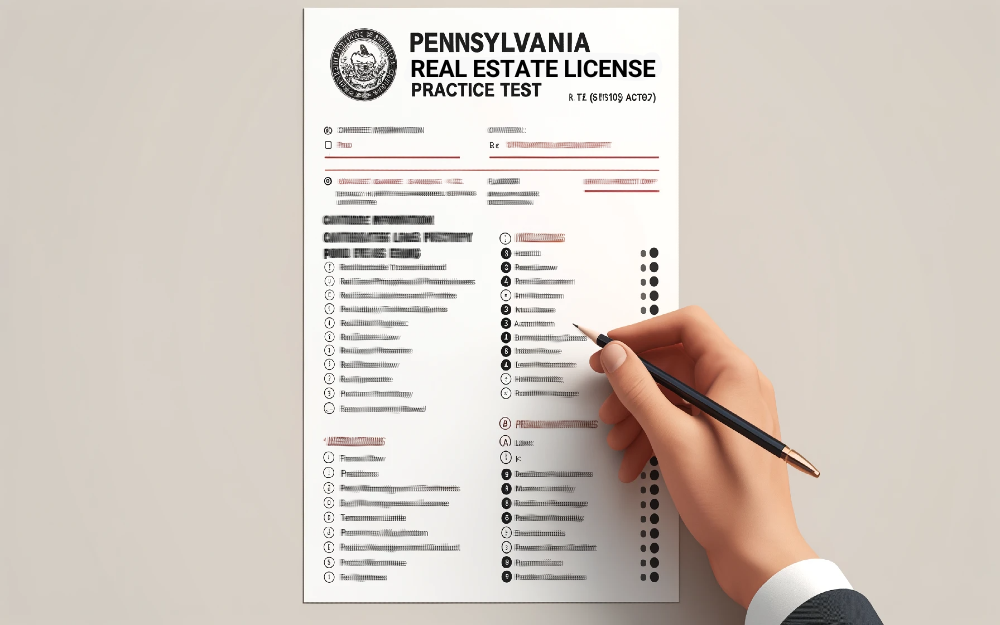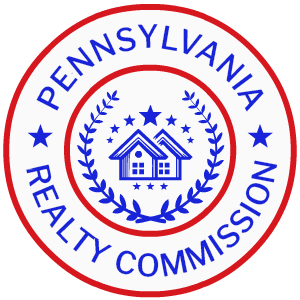
Determine your answer, then click the arrow to see the correct response.
What Is "Aesthetic Zoning"?
A) Zoning that restricts the types of businesses in a district
B) Zoning regulations that focus on the appearance of buildings and property use
C) Zoning laws related to environmental impact
D) Zoning that controls the number of housing units in an area
Correct Answer: B) Zoning regulations that focus on the appearance of buildings and property use
Explanation: Aesthetic zoning regulates the design and appearance of buildings and property use to ensure a harmonious and visually appealing environment within a community.
What Is "Quiet Title Action" in Real Estate Law?
A) A process to evict a tenant
B) A lawsuit to resolve disputes over property ownership
C) A method to lower property taxes
D) An agreement between buyer and seller
Correct Answer: B) A lawsuit to resolve disputes over property ownership
Explanation: A quiet title action is a lawsuit filed to establish ownership of real property when ownership is in question. It resolves disputes and clears up title defects to provide clear title to the property owner.
What Is a "Special Warranty Deed"?
A) A deed that guarantees clear title only for the duration of the current owner’s ownership
B) A deed that provides no guarantees about the title
C) A deed that guarantees clear title from the property's origin
D) A deed used to transfer property between family members
Correct Answer: A) A deed that guarantees clear title only for the duration of the current owner’s ownership
Explanation: A special warranty deed guarantees that the property has not been encumbered during the current owner’s tenure but makes no guarantees about the state of the title before their ownership.
What Is "Closing" in a Real Estate Transaction?
A) The first meeting between the buyer and seller
B) The process of moving into the new property
C) The final step in the property purchase process where ownership is transferred
D) The initial property inspection
Correct Answer: C) The final step in the property purchase process where ownership is transferred
Explanation: Closing is the final step in a real estate transaction where the buyer and seller sign the necessary documents, funds are transferred, and ownership of the property is officially transferred to the buyer.
In Pennsylvania, What Is Required for a Valid Conveyance of Real Property?
A) A verbal agreement between the buyer and seller
B) A written instrument signed by the grantor
C) A handshake witnessed by a third party
D) A formal court proceeding
Correct Answer: B) A written instrument signed by the grantor
Explanation: According to Pennsylvania statutes, a valid conveyance of real property requires a written instrument, such as a deed, that is signed by the grantor and properly recorded.
Mia, a Real Estate Broker in Pennsylvania, Receives a Referral Fee From a Mortgage Company Without Disclosing It to Her Client. Is This Permissible Under Pennsylvania Real Estate Laws?
A) Yes, as long as the fee is less than $500
B) No, because all referral fees must be disclosed to the client
C) Yes, as long as the client’s interests are not harmed
D) No, referral fees from mortgage companies are prohibited
Correct Answer: B) No, because all referral fees must be disclosed to the client
Explanation: Pennsylvania real estate laws require that all referral fees received by a broker must be disclosed to their client. Failure to do so can result in disciplinary actions for unethical conduct.
A Property in Pennsylvania Is Listed for $425,000. The Buyer Negotiates a 10% Discount on the Listed Price. What Is the Final Purchase Price After the Discount?
A) $382,500
B) $395,000
C) $400,000
D) $405,000
Correct Answer: A) $382,500
Explanation: A 10% discount on $425,000 is $425,000 × 0.10 = $42,500. The final purchase price is $425,000 – $42,500 = $382,500.
A Pennsylvania Real Estate Agent Helps a Seller Prepare a Property Disclosure Form But Advises the Seller To Omit Information About a Minor Roof Leak. What Could Be the Consequences for Both the Agent and the Seller if the Leak Is Discovered by the Buyer After the Sale?
A) Only the seller is liable for non-disclosure
B) Both the agent and the seller can be held liable for misrepresentation
C) The agent is immune from liability as they were only advising the seller
D) The buyer has no recourse if the leak is minor
Correct Answer: B) Both the agent and the seller can be held liable for misrepresentation
Explanation: Both the agent and the seller have a duty to disclose known defects in the property. Advising a seller to omit such information constitutes misrepresentation, making both parties liable for any resulting damages to the buyer.
A Homeowner in Pennsylvania Decides To Pay Off Their Mortgage Early. The Original Loan Amount Was $300,000 With an Annual Interest Rate of 4% and a Term of 30 Years. They Have Been Paying the Mortgage for 10 Years. How Much Principal Remains on the Loan? (Assume the Remaining Principal Is Approximately the Same as the Principal Balance for a Standard Fixed-Rate Mortgage After 10 Years.)
A) $200,000
B) $212,000
C) $228,000
D) $240,000
Correct Answer: C) $228,000
Explanation: For a standard fixed-rate mortgage, the principal remaining after 10 years of payments on a 30-year loan at 4% interest is approximately $228,000.
A Pennsylvania Real Estate Investor Buys a Property for $1,200,000. They Spend $150,000 on Renovations and Then Sell the Property for $1,500,000. What Is Their Profit From This Investment?
A) $100,000
B) $150,000
C) $200,000
D) $250,000
Correct Answer: C) $200,000
Explanation: The investor’s profit is calculated by subtracting the purchase price and renovation costs from the selling price. Profit = $1,500,000 – ($1,200,000 + $150,000) = $150,000.
